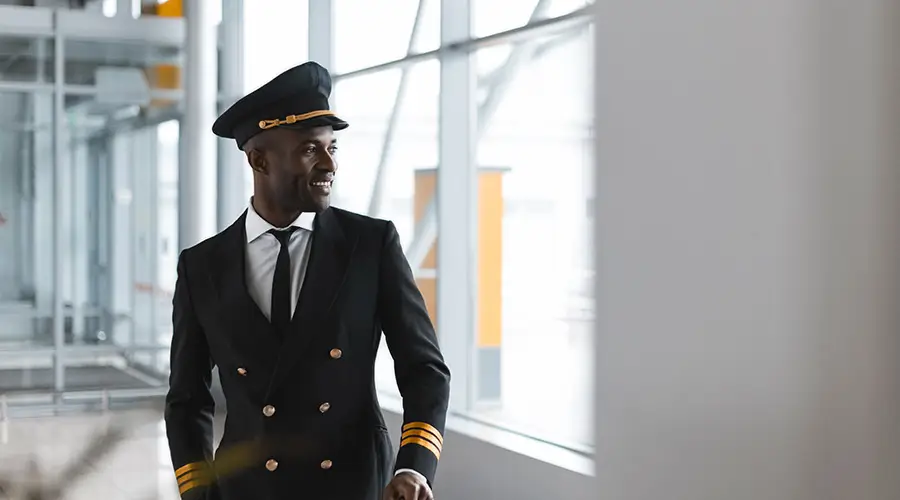Some frequent flyers may notice a lack of representation among pilots. According to the U.S. Bureau of Labor Statistics, Black Americans comprised just 3.6% of pilots and flight engineers in 2023, representing a stark lack of diversity in aviation. However, major airlines and other organizations are developing new programs aimed at increasing the number of Black pilots.
Below, we discuss the obstacles Black pilots face when entering aviation. We also touch on programs aimed at closing the gap and detail philanthropist Robert F. Smith’s support for organizations that support diversity efforts.
Barriers to Entry
Aspiring Black pilots face several hurdles when they consider joining the aviation industry, with cost being a major factor. According to Indeed, a commercial pilot license (CPL) can cost anywhere from $55,000 to $100,000. A private pilot license (PPL) can range between $15,000 to $20,000, and an airline transport pilot license (ATPL) can cost around $5,000.
Other factors keeping the industry from further diversifying include a lack of access to education, mentorship and other resources for aspiring Black pilots. There is also a general absence of exposure to the industry, which is reinforced by the cyclical lack of Black pilots and exposure.
Aviation Programs That Bolster Representation of Black Pilots
New programs are aiming to increase the number of Black pilots. In 2024, Tuskegee University announced an aviation training program, which consists of a bachelor’s degree in aviation science with a flight option to expand the number of Black pilots in the U.S. Other Historically Black Universities and Colleges (HBCUs) with aviation programs include:
- Delaware State University
- Texas Southern University
- Hampton University
- University of Maryland – Eastern Shore
- Tennessee State University
In addition, the Federal Aviation Administration (FAA) Reauthorization Act offers funding to advance diversity efforts in aviation, with approximately $240 million going toward flight deck diversity. Major airlines and other organizations have also set up programs to help bolster recruitment, including Delta Air Lines and the Organization of Black Aerospace Professionals.
Delta Air Lines’ Propel Pilot Career Path Program
Atlanta-based Delta Air Lines introduced its Propel Pilot Career Path Program in 2018. This workforce development initiative offers three career paths for participants:
- Collegiate Pilot Career Path
- Company Pilot Career Path
- Certified Flight Instructor (CFI) Path
Delta also provides access to its Propel Flight Academy, offering an expedited path to becoming a Delta pilot with the goal of increasing the number of Black pilots who fly for Delta. In addition, Delta has partnered with several HBCUs, including Elizabeth City State University, to help build career pipelines for Black pilots.
Organization of Black Aerospace Professionals (OBAP)
OBAP was founded in 1976 by Ben Thomas and nearly 40 other Black pilots, and its mission is to help eliminate barriers to entry in aviation and aerospace through skill development, advocacy and mentoring. The organization hosts its OBAP Annual Conference, which encourages networking and professional development.
Smith’s Support of Diversity Efforts
Smith supports diversity initiatives that help move the needle forward for communities that have traditionally lacked access to opportunities. His philanthropic reach includes Fund II Foundation’s internXL internship matching program and Student Freedom Initiative (SFI). SFI supports students at HBCUs, other Minority Serving Institutions (MSIs) and Tribal Colleges and Universities (TCUs). SFI reduces the burden of student loan debt and provides resources that prepare students for their futures. Tuskegee University, Hampton University, Tennessee State University and Texas Southern University are just some of the HBCUs with aviation programs that benefit from the support of Smith and SFI.
Follow Smith on LinkedIn to learn more about diversity initiatives that help increase the number of Black Americans in various industries.
